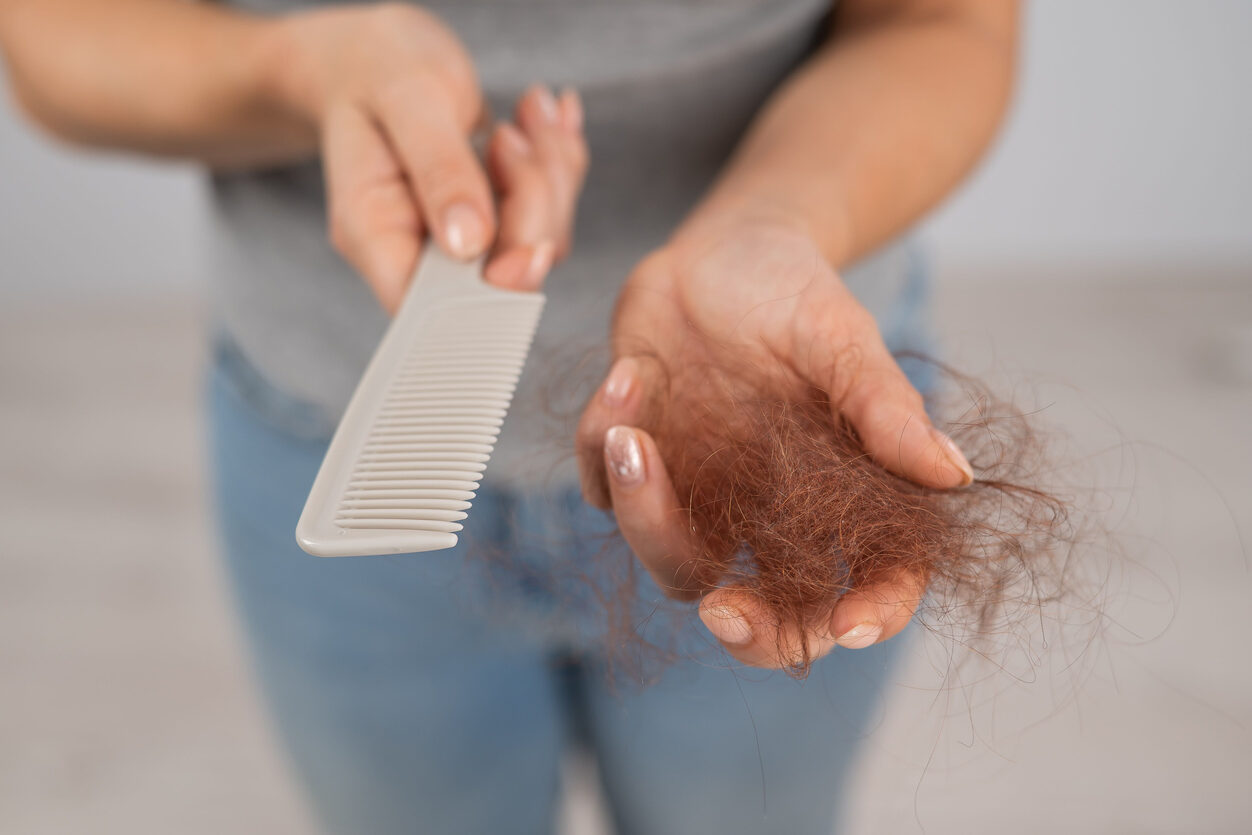1. You’re Always Tired, Even After a Full Night’s Sleep

Feeling tired all the time is frustrating, especially when you’re getting a full eight hours. If you constantly hit snooze, rely on caffeine, or struggle to stay alert during the day, low vitamin D could be part of the picture. This nutrient helps your body convert food into energy and keeps your muscles functioning properly.
When your levels are low, your body has to work harder to do basic things, which leaves you exhausted. It’s a silent drain you may not notice right away. Studies have linked vitamin D deficiency to chronic fatigue and even decreased endurance. If you’ve tried fixing your sleep routine but still feel wiped out, it might be time to look into your vitamin D levels. Thankfully, it’s an easy thing to test and getting back on track could give you the energy boost you’ve been missing.
2. Your Mood Has Been on a Rollercoaster
Mood swings that come out of nowhere? Feeling sad, anxious, or even angry for no reason? These emotional shifts may not just be stress. They could be tied to low vitamin D. This vitamin influences the brain’s production of serotonin, which helps stabilize mood and supports emotional regulation.
When your vitamin D levels dip, you might feel down or mentally foggy. Several studies have found a correlation between vitamin D deficiency and symptoms of depression, especially in adults over 40. If you’re feeling emotionally off and can’t quite explain it, this is a surprisingly common culprit. Getting more sun, eating vitamin D-rich foods, or using a supplement can make a big difference. A blood test can confirm it, and even small changes could help lift that emotional cloud.
3. You Get Sick More Often Than Usual
Are you the one who always catches the office bug first and recovers last? A sluggish immune system might be a warning sign of low vitamin D. This nutrient plays a big role in activating your body’s natural defenses. It helps white blood cells detect and fight off pathogens more effectively.
Research shows that vitamin D helps reduce the risk of respiratory infections, colds, and even the flu. A lack of it makes you more vulnerable and slows your recovery. So if you’re constantly under the weather or can’t seem to bounce back like you used to, this could be your body waving a red flag. Even if you’re doing everything right, eating healthy, staying active, low vitamin D can sabotage your immune strength. A supplement or extra time in the sun could give your body the boost it needs to stay healthy longer.
4. Your Bones Feel Achy or Weak
That dull, nagging ache in your lower back or hips? It might not be just aging. Vitamin D is crucial for absorbing calcium, and without it, your bones start to weaken. This can lead to soreness, stiffness, and even long-term bone loss if left unchecked.
Some people with low vitamin D develop osteomalacia, a softening of the bones that causes deep aches, especially in the legs or lower spine. It’s different from joint pain and often flares up after light physical activity or standing for long periods. Even if you’re eating calcium-rich foods, they won’t do much good without enough vitamin D in your system to help process them. If you’ve been feeling achy for no clear reason, it might be time to explore your vitamin D status.
5. Cuts and Wounds Take Forever to Heal
If your skin takes its sweet time to heal from small cuts, scrapes, or even bruises, you might be low on vitamin D. This vitamin supports the skin’s ability to repair itself by controlling inflammation and encouraging new tissue growth. When it’s missing, your healing process can slow down significantly.
You might notice scabs take longer to form, wounds stay red or swollen, or bruises linger for weeks. For adults, this isn’t just inconvenient. It could signal a nutrient imbalance. Research has linked low vitamin D levels with poor post-surgical recovery and delayed healing in general. It’s especially important for those who’ve had surgery or injury. If your skin isn’t bouncing back the way it used to, your body could be asking for help behind the scenes. A supplement might not fix everything overnight, but it can absolutely support your body’s ability to heal.
6. You’re Losing Hair More Than Usual

Everyone sheds some hair, especially during seasonal changes. But if your hair is thinning more than normal, think clumps in the shower or a brush that’s full every day, your body might be missing something. While stress and hormones are often to blame, vitamin D deficiency is another factor that’s easy to overlook.
Vitamin D helps stimulate hair follicles and keeps your scalp in balance. When levels drop, follicles can go dormant, leading to slower growth or more breakage. Some research also links low vitamin D to alopecia areata, an autoimmune form of hair loss. If your hair is shedding more than usual despite a good routine and diet, it might be time to check your vitamin D levels. A supplement or sunlight could help get things back on track before the loss becomes noticeable to others and before you spend money on pricey hair treatments.
7. Muscle Pain That Doesn’t Quite Make Sense
Sore muscles after a workout? Totally normal. But persistent muscle pain when you haven’t lifted a finger is a different story. Muscle weakness and unexplained aches are common symptoms of vitamin D deficiency. This vitamin helps your muscles contract properly and supports the nervous system, so when you’re low, things just don’t fire the way they should.
Many people describe the discomfort as vague, not sharp but annoying and constant. It can show up in your thighs, shoulders, or even your back, and it often worsens at night. You might stretch, hydrate, or even pop painkillers, but nothing really works. If that sounds familiar, it could be your body’s subtle signal that it needs more vitamin D. This is especially common in older adults and those who don’t get much sunlight. Thankfully, this is one of the easiest deficiencies to correct once you know what you’re dealing with.
8. You’re Dealing with Bone Loss or Fractures
Bone health might not be something you think about daily, but it should be. Especially after 40. If you’ve had a recent bone density scan that shows thinning bones or you’ve suffered a minor fracture from something that shouldn’t have caused one, low vitamin D might be a silent contributor.
This nutrient is critical for absorbing calcium, which is what gives bones their strength. Without enough vitamin D, your bones can weaken over time, making you more susceptible to breaks, falls, and even osteoporosis. While calcium gets all the attention, it can’t do its job without vitamin D working behind the scenes. If you’ve been told you have osteopenia or have fractured a wrist, hip, or ankle without a major fall, get your vitamin D levels checked. It’s a small step that could have a big impact on keeping your bones strong for years to come.
9. You Sweat a Lot, Even When You’re Not Hot

Let’s be real, sweating is normal. But if you’re drenched while sitting still in a cool room, or your forehead is constantly shiny for no reason, something might be off. Excessive sweating, especially on the head, can sometimes point to vitamin D deficiency. It’s a little-known sign, but doctors have long used it to detect deficiency in infants. And it applies to adults too.
While sweating can result from many causes, it becomes a concern when paired with other symptoms like fatigue, irritability, or muscle pain. Your body might be overcompensating for a chemical imbalance tied to low vitamin D. If your sweat levels feel out of sync with your activity or environment, take note. While it’s not the most obvious warning sign, it’s one more clue your body might be running low on this key nutrient. And it’s worth investigating with a simple test.
